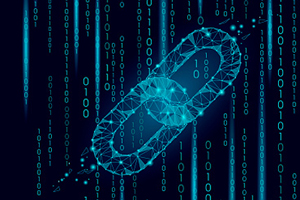
“My journey to understand blockchain is itself a blockchain,” said Helen B. Garrett, Ed.D., University Registrar and Chief Officer of Enrollment Information Services, University of Washington.
“With blockchain, you start with an idea or concept -- the original artifact, whether the deed to a house, a newly-opened bank account, or an academic transcript,” explained Garrett. “Then as you add records or artifacts to the original, the DNA of each is loaded into each subsequent document.”
Since she was first introduced to blockchain at the 2016 AACRAO Technology Conference, Garrett’s journey to understand it has developed in a unique, organic, oddly blockchain-like way.
“On my way to understanding it, I had to undergo a major cultural shift,” she said. “In my career I’ve been involved in over 25 different software implementations. I’ve learned that any technology implementation is 98 percent cultural shift and 2 percent technology.”
Garrett’s first first major shift came as she realized one of the biggest obstacles to understanding blockchain is fear. Her second realization: she didn’t have to understand blockchain to “get it.”
"[A]ny technology implementation is 98 percent cultural shift and 2 percent technology.”
What is blockchain, and what does it have to do with higher ed?
Blockchain refers to a bookkeeping method that “chains” together entries so that they are very difficult to modify later, providing a way for unrelated entities to jointly keep a secure and reliable record of transactions. Blockchain was first developed as part of Bitcoin, where all the transactions are sorted into “blocks,” and each block is “chained,” using sophisticated math, to the ones before it, all the way back to the very first transaction — a structure that makes it tough for anyone to change the records after the fact.
Using a blockchain framework, education institutions could potentially share a wide range of documents, including student transcripts or certificates, in a secure, verifiable network.
Let go and let blockchain: Trust over fear
Blockchain refers to a bookkeeping method that “chains” together entries so that they are very difficult to modify later, providing a way for unrelated entities to jointly keep a secure and reliable record of transactions. Blockchain was first developed as part of Bitcoin, where all the transactions are sorted into “blocks,” and each block is “chained,” using sophisticated math, to the ones before it, all the way back to the very first transaction — a structure that makes it tough for anyone to change the records after the fact. By creating a blockchain framework in higher education, institutions could potentially share a wide range of documents, including student transcripts or certificates, in a secure, verifiable network.The biggest challenge for most registrars and enrollment professionals isn’t learning the technology, it’s fearing the unknown. A cultural shift is required to defuse that fear and adapt to change.
“You don’t really have to worry about the technology,” Garrett said. “There are thousands and thousands of IT school graduates who will understand blockchain -- and all the other 3.0 web technologies besides -- and they will take care of that aspect of it. You don’t have to worry if you don’t understand it exactly.”
New technologies can provoke fear in some professionals -- such as a fear of appearing ignorant, fear of personnel changes, and fears around access and diversity issues -- but, Garrett said, this this mistrust is misplaced.
“Ironically enough we seem to trust humans to validate credentials, but they can make mistakes. They can do things not worthy of trust.,” Garrett said. “With blockchain technology, it’s a computer looking for a particular code, which either matches or it doesn’t: the computer doesn’t care. If we let computers do that, there won't be fraud and mistakes.”
Build your blockchain confidence
Garrett is presenting a
free AACRAO webinar 2 p.m. EDT on Wednesday, June 6th (live tomorrow, also archived to view at your convenience) and also sharing her journey at the
2018 AACRAO Technology and Transfer Conference in Minneapolis, July 8-10.
“I think there’s a high probability that attendees will leave understanding what a block chain is,” Garrett said, laughing. “But the session is not technical. It’s about building trust that no matter what your background and knowledge is, you can understand this, understand why we might do this, and learn that, as an equity issue, blockchain is accessible. It’s a confidence booster: we can get this.”
Ready to demystify blockchain?
June 6, 2018 --
“Block Chain Untangled” webinar
July 8-10, 2018 --
AACRAO Technology & Transfer Conference (Hint: Use the ‘Searchable Program’ link to find related sessions.)